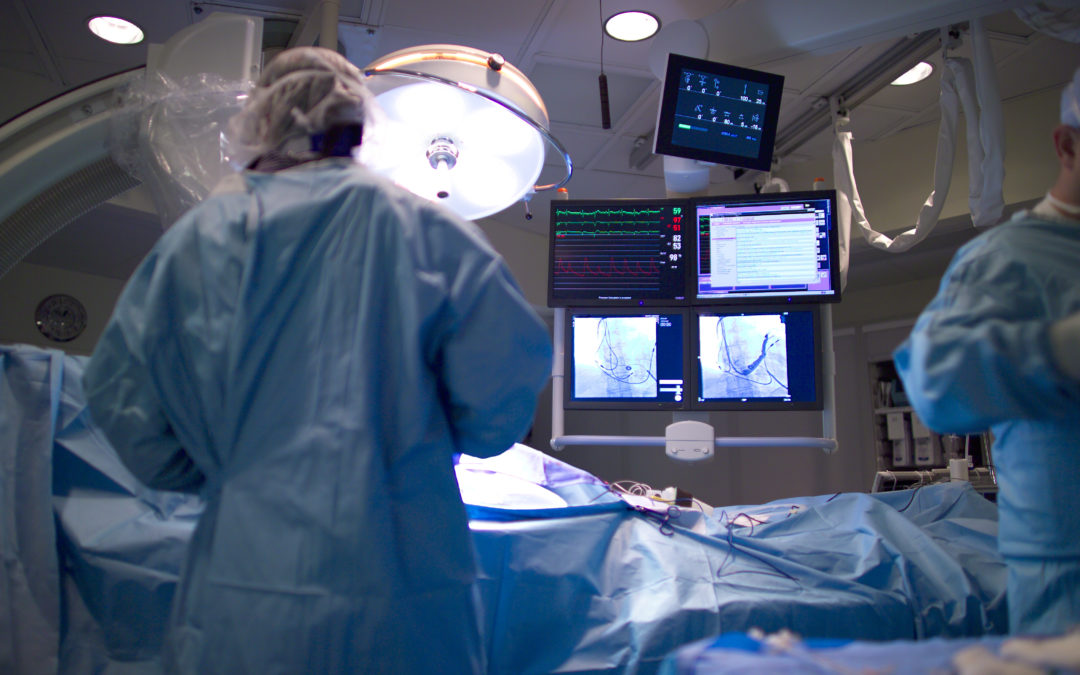
by targetmarket | Jan 15, 2024 | Minimally Invasive, Uncategorized
Coronary artery bypass surgery (CABG) has been a cornerstone in the treatment of coronary artery disease (CAD), providing a lifeline for individuals with blocked or narrowed arteries. Traditionally, CABG involved a sternotomy, a procedure requiring a sizable incision through the chest, but the landscape of cardiac surgery has transformed the way we cure coronary artery disease. Minimally Invasive Coronary Artery Bypass Surgery (MICABG) Unfortunately, many patients are reluctant to consider Minimally Invasive Coronary Artery Bypass surgery and want to opt for a “cheap way out” (stents) that often commits them to even more trouble in the future. Here at Minimally Invasive and Bloodless Heart Surgery with Dr. Ciuffo, we will explore the significance, procedure, benefits, and advancements associated with minimally invasive approaches to coronary artery bypass surgery. Significance Of Minimally Invasive CABG Minimally invasive coronary artery bypass surgery (MICABG) represents huge advancements in the realm of cardiac surgery. This procedure deals with badly clogged pipes (the coronary arteries). During MICABG, a new pipe (a bypass) is connected between the aorta (the equivalent of the main water supply) and the coronary artery segment downstream from the blockage (the “clogged pipe”). This bypass serves the purpose of bringing back a normal flow of oxygenated blood to the portion of heart muscle supplied by the blocked coronary artery The Procedure Patient Selection Not all patients are candidates for MICABG, and eligibility is determined based on factors such as the location and severity of coronary artery disease, overall health, and more. Anesthesia MICABG typically involves general anesthesia to ensure that the patient is unconscious and pain-free throughout the surgery. Small Incisions Instead of... 
by targetmarket | Sep 15, 2023 | Dr. Giovanni B Ciuffo, Minimally Invasive Heart Surgeons, Minimally Invasive Heart Surgery, Uncategorized
Cardiovascular disease remains a leading cause of mortality worldwide. In fact, The American Heart Association (AHA) reports that approximately 82.6 million people in the United States currently have one or more forms of cardiovascular disease (CVD). Due to the prevalence of cardiovascular disease, there are continuous advancements in cardiac surgery techniques. Among these innovations, minimally invasive cardiac surgery stands out as a game-changer, offering numerous benefits over traditional open-heart surgery. Minimally Invasive Cardiac Surgery Minimally invasive cardiac surgery is an innovative approach that involves smaller incisions and advanced technology, resulting in shorter recovery times and improved patient outcomes. Dr. Ciuffo is an expert in high-risk heart surgery cases. He can evaluate your case and handle risk factors with our minimally invasive techniques with excellent results. Continue reading to learn 8 benefits of minimally invasive cardiac surgery. 1. Smaller Incisions And Reduced Scarring One of the most apparent benefits of minimally invasive cardiac surgery is the significantly smaller incisions made during the procedure. Compared to the large incision required for open-heart surgery, minimally invasive techniques use small keyhole incisions. As a result, patients experience less scarring, which not only has cosmetic benefits but also contributes to faster healing. 2. Quicker Recovery Time A shorter recovery time is a pivotal advantage of minimally invasive cardiac surgery. Patients typically spend less time in the hospital after the procedure and can return to their daily activities sooner. This reduced recovery period can lead to a higher quality of life and less disruption to the patient’s routine. 3. Reduced Pain and Discomfort Minimally invasive procedures are associated with less postoperative pain and discomfort.... 
by DrCiuffo | Aug 15, 2022 | Blog, Heart Health, Uncategorized
Changes To Make For Heart Disease Prevention There are plenty of myths surrounding heart health, including fad diets, fitness routines, and “miracle” cures that are marketed as a magic bullet against heart problems. The truth is, heart disease prevention takes diligence and a thoughtful approach to diet and exercise, but some basic steps can help protect your heart health for the long term. Smoking Cessation Smokers have some of the highest instances of heart problems and heart attacks of any population. The carbon monoxide in smoke replaces some of the oxygen in your blood, forcing the heart to work harder to deliver enough oxygen to your body. While that is already a large issue, tobacco contains chemicals that can cause plaque buildup in the arteries, leading to a heart attack. Both of these issues can substantially affect your heart’s function, and eventually, help lead to further problems. Smoking cessation can reduce your chances of heart problems significantly. Exercise Though many adults don’t have time in their schedules or the motivation to take on a strenuous exercise program, even a moderate increase in exercise can have an impact on your heart health. At least 30 minutes a day of moderate exercise, like walking at a brisk pace, is great support for your heart. When combined with diet, increased exercise not only increases heart health, it helps raise levels of serotonin, the feel-good chemical, as well as reduces anxiety, depression, and moodiness. Diet The word “diet” has taken on a negative connotation for many. It is not necessary to embrace a lifestyle of starvation and salads to increase your heart health.... 
by DrCiuffo | Apr 15, 2022 | Uncategorized
No matter what stage of life you are in, healthy nutrition is important to maintain good health, prevent many diseases, feel good, and is vital for our hearts. In this blog we will answer the question, what changes should I make before and after heart surgery. Heart disease is the number one cause of death of women and men in the United States. If that doesn’t alarm you I don’t know what will. If heart surgery is on the horizon for you, you can prepare with some lifestyle changes and know what needs to change once you are in recovery. Changes to Make Before Heart Surgery Quit smoking because it inhibits the body’s ability to heal. If you have diabetes be sure to keep your blood sugars well controlled. High blood sugar also makes it hard for our bodies to heal. You want to have quality nutrition before entering surgery. Our bodies get stressed when we are sick or have surgeries, so it is important to have good nutrition before surgery to help you heal faster after your surgery is completed. If your normal routine is healthy then don’t change your system. If you notice you’ve had a poor diet and haven’t been eating normally and have lost some weight, try finding foods and drinks you can have that will give you the calories you need. You don’t want to be losing weight and on a strict diet before surgery. Changes to Make After Heart Surgery After heart surgery, you will again want to be having good nutrition. After heart surgery, your body will need more protein and enough calories... by DrCiuffo | Apr 22, 2021 | Uncategorized
Minimally invasive heart surgery utilizes healthcare professionals in cardiac, surgery, cardiac anesthesiologist, perfusionist, assistants, and nurses in the operating room. Each professional brings their specialized and unique expertise which is important to ensure the best possible outcome for the patient. There are some disadvantages to consider when looking into minimally invasive heart surgery. There are also some great advantages. Disadvantages of Minimally Invasive Heart Surgery Not Everyone is a Candidate To be a candidate for minimally invasive surgery you have to have a blocked or diseased vessel on the left side of the heart only. Or a requirement can be you had not previously had bypass surgery as well as no preexisting scar tissue on the heart or chest. A disadvantage of minimally invasive heart surgery is not everyone is a good candidate for the procedure. Surgeons are researching new ways to apply the surgery so overtime more and more people will be able to benefit from the procedure. Long Time in the Operating Room Another disadvantage of Minimally Invasive Heart Surgery is the surgery takes a longer time in the operating room. Advantages of Minimally Invasive Heart Surgery Shorten Recovery Time There is a smaller incision during minimally invasive surgery, which means there is less of a wound to heal. When less healing is needed, your body can heal quickly and reduce the recovery period from four to eight weeks with conventional open surgery to two to four weeks with minimally invasive surgery. There will also be less pain and the incision will go away more quickly because of the smaller incision. This allows for the advantage of... by DrCiuffo | Feb 5, 2020 | Articles, Blog, Dr. Giovanni B Ciuffo, Heart Health, Heart Surgery, Minimally Invasive Heart Surgeons, Minimally Invasive Heart Surgery, Uncategorized
What is a Pulse Deficit? The concept of a pulse deficit can be both confusing and frightening if you’re not a member of the medical community, but it has a direct bearing on the health of your heart and can be life threatening if not treated properly and allowed to get worse. It sounds confusing, but is quite simple. When your heart beats, it sends blood through the arteries of your body. This produces a noticeable pulse which can be felt. Normally these two events are in synch, but it is when they are not in synch, the pulse and the beat of your heart, that problems can arise. What Causes a Pulse Deficit? There are several causes for a pulse deficit, some of which are not necessarily indicators of heart disease, such as heavy exercise. Other causes of a pulse deficit are not so innocent, however, and can include low blood pressure, periods of extreme anxiety or stress, extended periods of chronic pain, and bodily injury or trauma, including blood loss. What happens when there is a pulse deficit is that when the heart beats, but there is no pulse of blood that comes after. This creates a pulse deficit. How is it Treated? Observing that someone has a pulse deficit is fairly straightforward. A doctor or nurse listens to your chest with a stethoscope and notes the heartbeat, but when they attempt to take your pulse, do not notice the same number of pulse beats. The symptoms of pulse deficit include a noticeably decreased resting heart rate and a long-term consistent history of having a different resting...




